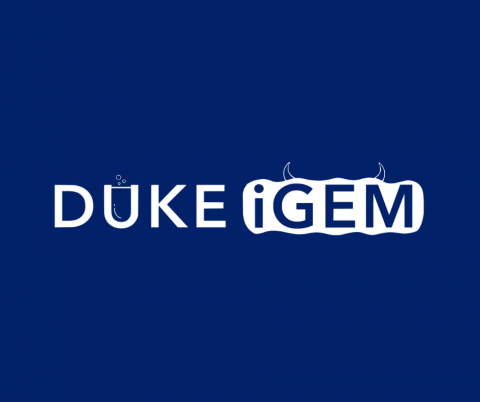Duke iGEM: Synthetic Biology for Human Health and Society (2024-2025)
Background
Rapid advances in synthetic and systems biology, metabolic and enzyme engineering, and nanotechnology are having profound impacts on biotechnology and related engineering fields. Formerly an expensive and highly specialized discipline, synthetic biology is now the focus of an annual competition for high schools and university students who freely explore the field in hands-on, collaborative and authentic research experiences.
The Duke International Genetically Engineered Machine (iGEM) team was founded to stimulate and nurture students’ passions in science and engineering with a focus on synthetic biology and biotechnology exploration, in order to prepare them as future leaders, innovators and researchers in these emerging fields. Students participate in all aspects of the engineering cycle, including designing, building and testing a research project that will advance health outcomes using novel synthetic biology tools. iGEM also compels student researchers to analyze the human and ethical practices of their research.
Project Description
Building on the work of previous teams, this project team will develop a genetically engineered machine motivated by current research in synthetic biology and support the greater community with open-source access to all team materials. Team members will implement the engineering design-build-test-learn cycle to iterate novel genetic designs in DNA and develop hypotheses and analyses of results from primary data, combined with mathematical and protein modeling.
The team will also work to integrate human practices and the study of key stakeholders in the cancer immunotherapy space and evaluate the landscape of antibody patents and how they may restrict innovation in cancer immunology and research. Ultimately, team members will share their findings at the iGEM International Jamboree, which is joined by more than 400 university teams from around the world.
Anticipated Outputs
“Biobricks” (standardized, modular DNA sequences) for open-access use; Wiki website to communicate project outcomes; manuscript for publication
Student Opportunities
Ideally, this project team will include 3 graduate students and 15-20 undergraduate students with backgrounds in life sciences fields (e.g., biology, biochemistry, biomedical engineering), computer science, statistics, public policy, philosophy, law and ethics. Successful applicants must have an interest in tackling new and unknown challenges in human health. No previous research experience is necessary as peers and advisors will assist in training fundamental techniques.
By working in a collaborative team, project members of Duke iGEM will gain valuable insights from their peers as they explore the multifaceted discipline of synthetic biology. Team members will learn theories and practice techniques in molecular biology, such as DNA assembly, bacterial transformation, mammalian cell culture and high-throughput screening. They will critique primary literature in synthetic biology, public policy and research ethics. In implementing the design-build-test-learn cycle, students will build a genetically engineering machine that actuates a defined function and measure outputs to meet goals and hypotheses. Team members will have the opportunity to present their findings at multiple conferences and submit manuscripts of their research for publication.
A graduate student will be selected as project manager and will acquire valuable skills in project management and mentoring undergraduate students.
This team will have an optional summer research component lasting 8 weeks in June and July in which students will work approximately 20 hours a week. Selected team members will have the opportunity to travel to present at the iGEM International Jamboree in November 2024.
Timing
- Summer 2024 (optional): Conduct literature review; prepare project and research plan; perform experiments; analyze results; share findings to team/general audience; interview stakeholders in human practices of synthetic biology
- Fall 2024: Continue research; prepare poster presentation and video presentation; attend iGEM International Jamboree; receive feedback from judges to motivate next steps of project
- Spring 2025: Onboard new members into modified project based on iGEM competition feedback; finalize manuscript; prepare preprint manuscript for submission; identify team members who will continue with iGEM; discuss project changes; conduct literature review
- Summer 2025 (optional): Continue projects or pursue different ones based on feedback
Crediting
Academic credit available for fall and spring semesters; summer funding available
See earlier related team, Synthetic Biology and Genetic Engineering for Human Health and Society (2023-2024).
Image: Duke iGEM logo from 2022-23 team website

Team Leaders
- Cameron Kim, Pratt School of Engineering-Biomedical Engineering
/yfaculty/staff Team Members
-
Margaret Wacera Gatongi, Biomedical Engineering
-
Charles Gersbach, Pratt School of Engineering-Biomedical Engineering
-
Melanie Tran, Biomedical Engineering
